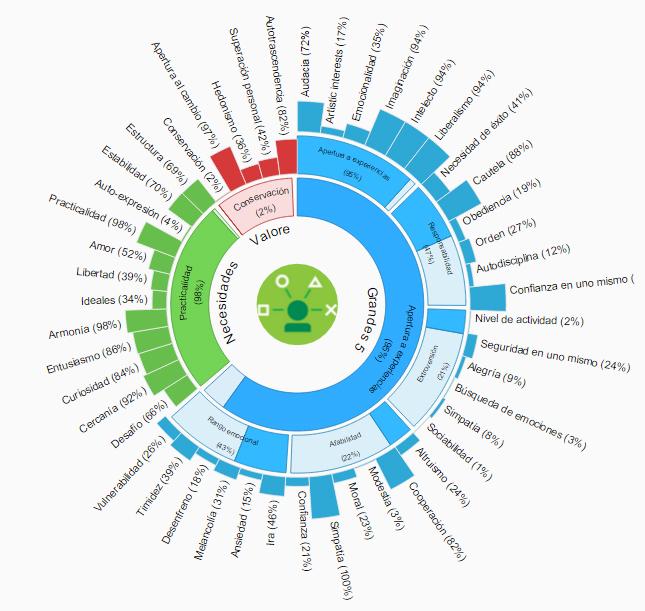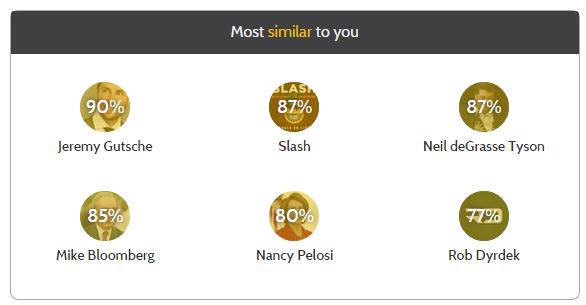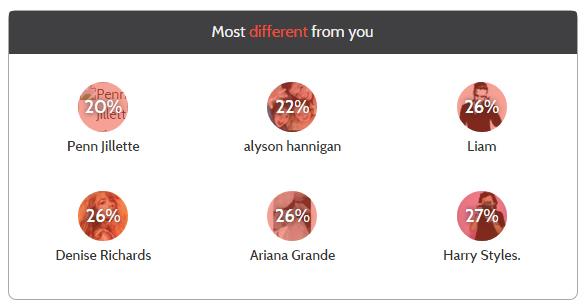If there is a company in the world that is betting strongly on cognitive computing, that is IBM. It’s not a recent decision, though. The company based in Armonk (NY, USA) has been experimenting for some time now with machines with human capabilities. The latest milestone in their research on Artificial Intelligence is IBM Watson Personality Insights, a tool that very well could be your psychologist.
The new release of IBM was announced in February during the IBM InterConnect 2015 conference held in Las Vegas. This service, available through the tool for the development of applications in the cloud Bluemix, provides developers and businesses an Application Programming Interface (API) that allows to derive insights from users and consumers based on social networks, enterprise data, or other tools and digital environments.
IBM’s application uses deep learning and linguistic analysis to extract profiles about the personality, values and needs of users through emails, text messages, comments in forums or tweets. These insights ultimately enable companies to offer customized products, improve their relationship with customers and increase their commitment and personal satisfaction with the service.
Visualizing the user’s personality
The classification of profiles in IBM Watson Personality Insights is based on several studies and models in fields such as psychology, psycholinguistics and marketing:
– The Big Five personality model, a study of enormous significance within the field of psychology developed by Warren T. Norman (1963) and Paul Costa (1992). It defines how a person relates to the world according to five dimensions (openness, conscientiousness, extraversion, agreeableness, and emotional range.)
– Needs – also included in IBM’s personality model, they define what a user expects from a product or service.
– Values – the third pillar of IBM Watson Personality Insights; they convey the goals that guide people.
In turn, this primary classification is divided into:
– A first table of facets, offering a description of user profiles who score highly in each of these fields.
– At a second level of classification, IBM Watson Personality Insights presents a range of characteristics according to the score of individuals in the facets.
– At the third level, the service mixes primary and secondary dimensions to develop an even more accurate profile of the user. The relationship between the various facets also defines their personality.
Thus, the user is classified by qualities such as enthusiasm, freedom, the need for success, self-discipline, caution, boldness, stability, openness to change, curiosity, modesty, altruism or joy.
The tool already has a demo in Bluemix where any user can try the service. The test includes a short text that allows to generate a personality visualization.

Creating applications with IBM Watson Personality Insights
If you are a developer and want to start implementing applications with IBM Watson Personality Insights, the IBM Watson Developer cloud service offers a Node.js package to simplify the development process. The package includes practical examples of applications of simple commands that allow you to experiment with the IBM services smoothly.
Steps to follow:
– Satisfy the requisites to run a Node.js application.
– Obtain your credentials for the Bluemix cloud service.
– Run the application by installing the Node.js package.
Developers don’t need to use only Node.js; they also have a tutorial for launching and running applications in Java.
Your Celebrity Match, an example

In Bluemix there’s already an application showcasing the possibilities offered by this IBM service. It’s called Your Celebrity Match and, based on your Twitter profile, it allows to compare your personality with any celebrity included in the application’s database. At the end, the tool shows a classification of those celebrities who are more and less similar to you.


What’s behind IBM Watson Personality Insights
This IBM service is based on a premise accepted by fields like psychology or marketing: the use of words and their classification can provide clues about the personality, way of thinking, personal relationships and emotional stress of any user. There are several studies that establish a direct relationship between the use of certain words and not others in blogs, essays, photos and tweets, and the personality of its author.
To support the science behind IBM Watson Personality Insights, the company made a series of studies to understand the process by which the data collected in social media can define and predict the behavior, personality or preferences of a user. IBM reached several conclusions:
– The most emotional people tend to be more likely to respond, while those who are more cautious do the opposite.
– Users who stand out in aspects such as modesty, openness to experiences and kindness are often more prone to disseminate information of third parties.
– Open-minded people with a low emotional range are generally more likely to open links or click on ads. According to data from IBM, these profiles often have a click rate of 11.3%, versus the 6.8% of the opposite profiles, and a follow-up rate of 8.8% compared to 4.7%.
BBVA – Follow us at @BBVAAPIMarket















